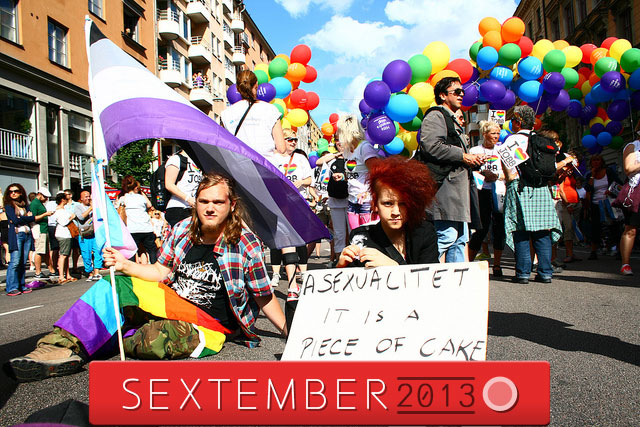No sex? No problem!
Saying no thanks to sex is more than a matter of choice for some – it’s also a way of life. For SEXtember Jordan Thompson looks into a condition wherein a person experiences no sexual attraction to either gender.
Not many people may be aware that in the broad spectrum of sexual identity, there are those who do not find themselves sexually attracted to either gender. This group of people identify as asexual.
Asexuality is in fact rare: statistics show that asexuals comprise around one per cent of the general adult population. However, this is not reflected in the social use of the asexual-label, which tends to suggest celibacy or unavailability. In part, this is due to a misinterpretation of what asexuality actually is, and the multitude of interpretations which the term takes on.
The Asexual Visibility and Education Network (AVEN) hosts the world’s largest online community of asexuals, and is working towards educating both asexual and non-asexual people alike. Their definition of asexuality makes clear that it is not an issue of choice. Asexuals are not celibate, afraid of intimacy, simply unable to find a partner, or feel unable to fall in love. Neither are they androgynous, sexually repressed, suffering sexual dysfunction or lack of libido due to circumstance or age. In the correct definition, an asexual person was born that way.
So why then has misuse of the term become so popular? Meld spoke to sex therapist and educator Cyndi Darnell about interpretations of asexuality, the value of such labels, and the hyper-sexualised world which we live in.
Cyndi explained to me that some people label their sexuality in one way or another in order to find safety or a sense of normality. However, “normal” is not a term which she uses when talking about sex.
When we ask ‘am I normal’ that means, ‘am I like everybody else’ and the answer to that is in some ways yes and in some ways no,” says Cyndi.
Adopting a label can simply come from a desire to be associated with a community, something that people find meaningful and reassuring. “Asexual”, as a popular term, is one of these labels. Cyndi believes its extensive popularity could be being used to avoid the confronting realities of sexual relationships.
“I think folks who struggle around intimacy, or struggle around emotional connection may very easily diagnose themselves as being asexual, because having to face the difficulty that is ‘sexual relationships’ is really daunting for people…just because people find sexual relationships difficult it doesn’t mean that they’re asexual.”
In Australia we live in a hyper-sexualised society. The sexual images we encounter daily, Cyndi says, are partially responsible for a false image of eroticism. Cyndi regards mainstream pornography as an extreme and sometimes unrealistic depiction of sex – which does not always reflect an actual erotic scenario. When people regard these images as a representation of what sex is actually like, then they may feel intimidated and decide to “opt out”, so to speak.
“That to me is not asexuality,” Cyndi says, “That is a sense of being overwhelmed at the lack of discourse in our culture about what actual sexuality is.”
We don’t have enough conversations about what sex actually is. We either get the extreme sports version, or we get the medical version…So no wonder people are feeling a bit confronted by this…”
AVEN encourages people to identify themselves as asexual for as long as it makes sense for them. “At its core,” their website reads, “it’s just a word that people use to help figure themselves out.”
Cyndi is neither pro-label nor anti-label, but feels that we have to explore why people label themselves. When a person labels themselves as asexual they are making a decision to define themselves, and this element of choice is what defines the term as a self-imposed label rather than the ‘actual’ meaning of the word.
Cyndi understands that “asexual” can be used in this way to escape the complex emotions of sexual relationships, but feels that more likely than being legitimately ‘1 per cent asexuals’, young people are turning to the label from a sense of overwhelm at the lack of genuine discourse around sexuality.
“We don’t have enough conversations about what sex actually is. We either get the extreme sports version, or we get the medical version…So no wonder people are feeling a bit confronted by this, and they are feeling a bit like, ‘Oh god I don’t know where I stand, I’m just going to call myself asexual and then I don’t have to answer any of these questions.”
You can visit Cyndi Darnell’s website here.
For more information and resources on asexuality you can visit the AVEN website here: http://www.asexuality.org/home/

